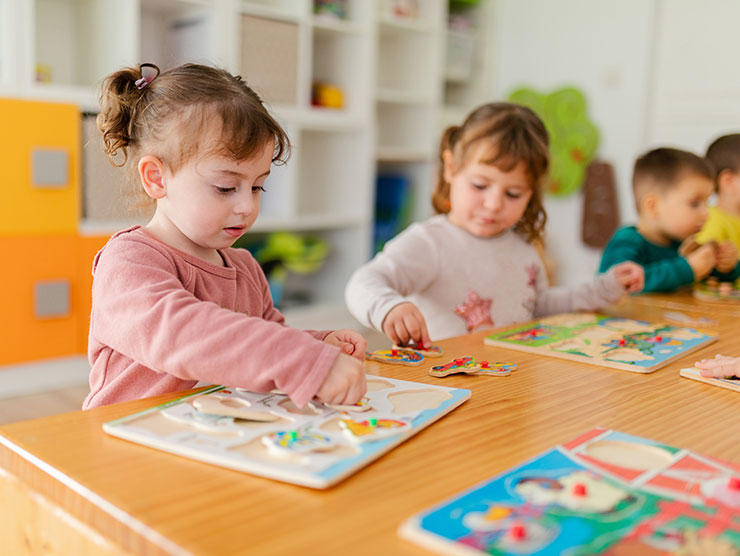We’re kicking off episode 2 of our series “Play Matters”, where you’ll learn how play can be a powerful tool for children to understand the world around them and gain practical tips for caregivers. If you missed episode 1, check it out here.
In Episode 2, Kanika Chadda-Gupta and Claire Goss explore the science-backed benefits of play, emphasizing how it fosters curiosity, creativity, and meaningful learning experiences while helping children build essential life skills.
Play as a child’s work
While play is often seen as a fun pastime, its significance runs much deeper. For young children, play is not just about entertainment—it’s their primary means of exploring the world, developing essential skills, and building a foundation for lifelong learning. Research and child development theories consistently affirm that play sparks curiosity, fosters creativity, and drives impactful learning experiences.
Play is frequently interpreted as a break from serious learning, but for children, it is serious learning. As Fred Rogers famously said, “Play is really the work of childhood.” Children learn through play. Independent or with others, children naturally experiment with cause and effect, test boundaries, and build problem-solving skills. Whether stacking blocks, dismantling toys, or pretending to be chefs, children are engaging in activities that develop essential cognitive and social abilities.
The importance of unstructured play
As parents, we often feel the need to entertain our children when we hear the complaints of “I’m bored” ringing through the house. However, unstructured playtime is more valuable than many realize. In today’s fast-paced world, packed schedules often leave little room for spontaneous exploration. Yet, when children have open-ended blocks of time, they are free to imagine, create, invent, and discover without restrictions. These self-directed moments allow children’s natural interests and developmental needs to emerge. For instance, a child drawn to puzzles might be honing problem-solving abilities, while one who enjoys crafting could be refining fine motor coordination.
Curiosity drives learning
Children learn best when they are curious and engaged, and play provides the perfect opportunity for this. Claire notes that like adults, children are more likely to absorb information when they are exploring topics that spark their interest. Following children’s interests is something prioritized in a Discovery Driven Learning classroom at Bright Horizons. When children have choices during play, they become invested in the learning process. This motivation encourages enthusiasm for learning, making play an incredibly effective growth tool. Parents can support this by providing time and space for free and/or guided exploration and play.
Play as a safe space for experimentation
Play also serves as a safe environment for children to experiment with and make sense of the world around them. Whether they are building towers with blocks, role-playing scenarios, or figuring out how objects interact, children are engaging in hands-on learning. In this space, trial and error are not only welcomed but encouraged, and mistakes are simply part of the process. Such experimentation fosters critical thinking and resilience—skills that benefit children long after their play years.
Practical takeaways
The discussion highlights the importance of giving children the time and freedom to play. Parents do not need elaborate toys or structured programs to effectively encourage learning through play. Instead, providing opportunities for self-directed, unstructured play can result in rich developmental benefits. Allowing children to take the lead in their play not only nurtures their interests but also helps them build both confidence and independence.
Listen to how powerful of a learning tool play is by tuning into episode 2 of "Play Matters" with Bright Horizons and help unlock your child’s full potential. And don’t forget to check out episode 3 here.





